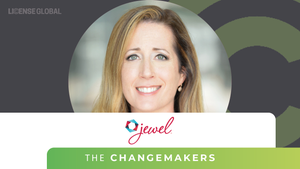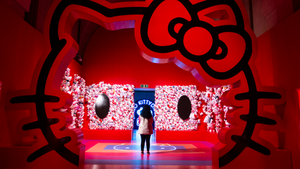Dressed for Success
Phillips-Van Heusen relies on a multiple brand, channel, and price point strategy to provide stability amid shifting market trends and retail consolidation. When shopping for a dress shirt, whether at "collection&
April 6, 2018

Phillips-Van Heusen relies on a multiple brand, channel, and price point strategy to provide stability amid shifting market trends and retail consolidation.

When shopping for a dress shirt, whether at "collection" stores or specialty shops—where dress shirts command top dollar for the finest details and fabrics—or at department stores, freestanding stores, or discount outlets, consumers are likely to purchase one of the many labels offered by Phillips-Van Heusen (PVH). In fact, one of every three dress shirts sold in the U.S. is a PVH product.
PVH's portfolio of licensed brands runs the gamut from true designer labels such as Geoffrey Beene, Kenneth Cole, unlisted, and Reaction to BCBG Max Azria, BCBG Attitude, JOE (Joseph Abboud), Michael (Michael Kors), and Chaps. The list embraces those with celebrity appeal, and includes the Sean John and Donald J. Trump labels. In addition to licensing, PVH owns eight distinctive brands including Calvin Klein Collection, Calvin Klein, and ck, as well as moderately priced brands Izod, Arrow, Van Heusen, Bass, and Eagle. 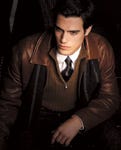
The company's brands are offered at a variety of price points and in multiple channels of distribution—a strategy that is tailored to capture consumers at all levels. "Our multiple brand, multiple channel, multiple price point strategy is designed to provide stability should market trends shift," reveals Kenneth L. Wyse, president of licensing and public relations, who joined PVH 20 years ago as licensing manager and also serves as vice chairman of the Business Council of Lincoln Center, as well as a board member of Housing Works, YMA (Young Menswear Association) Scholarship Fund, and the Fashion Institute of Technology. "This allows us to provide products to a broad range of consumers, while minimizing competition among our brands and reducing our reliance on any one demographic group, merchandise preference, or distribution channel."
Phillips-Van Heusen currently employs a workforce of more than 13,000 staffers and maintains additional facilities worldwide to support its global operations. The licensing team consists of more than a dozen employees, who develop brand extensions both domestically and internationally. PVH also licenses its heritage brands to 150 licensees in more than 100 countries. According to the company's annual report, net sales went up $237.1 million to hit $1.69 billion in 2005 (including $100.5 million in net sales attributable to the Calvin Klein men's better sportswear line marketing to upscale specialty and department stores; $79.2 million attributable to growth in the Izod, Arrow, and Van Heusen wholesale sportswear business; and $75.7 million attributable to growth in PVH's wholesale dress shirt business, particularly from the BCBG Max Azria, BCGB Attitude, Sean John, and Chaps lines; core brands Van Heusen, Arrow, Geoffrey Beene, Izod, Eagle, and Calvin Klein; and the 2005 launch of the Donald J. Trump Signature Collection). The company's apparel businesses increased operating income 74 percent to $174 million in 2005.
Much of PVH's success can be attributed to its Dress Shirt Group, which continues to drive and maintain the company's leadership status in the dress shirt market, and continues to expand its offerings through license agreements. Combined, The Dress Shirt Group now offers 14 brands, marking its largest roster ever. 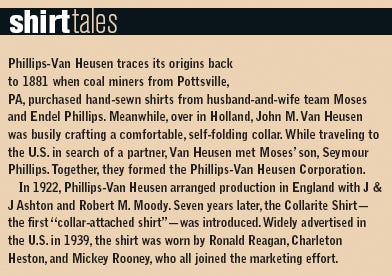
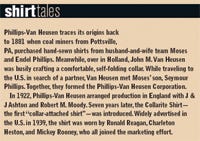
2002 marked a major milestone for the company, which embarked on a new journey with the acquisition of the Calvin Klein Company, a solid existing business and a brand that offered "incredible" growth potential worldwide, according to Wyse. Another strategic move was made in December 2004, when PVH purchased the worldwide rights to the Arrow brand—an authentic American label that reflects the youthfulness, industriousness, optimism, and freedom that embody the American experience.
The company licensed the Arrow brand in the U.S. in 2001 and reinvigorated it, creating a roadmap for expansion upon its already significant international presence. With a list of more than 40 licensees in 90-plus countries, Arrow currently has the strongest presence in the international arena. It offers a wide array of categories from dresswear to childrenswear, womenswear, tailored clothing, sportswear, neckwear, and loungewear. "Since the acquisition, we have revitalized Arrow through branding, packaging, and marketing," says Wyse. "With the new positioning philosophy in place, we believe the Arrow brand is prepared for continuous growth." In 2005, Arrow stitched new agreements for distribution in Spain and men's tailored clothing to be sold in the U.S. marketplace. The brand's licensing partners opened 17 Arrow stores in 2006, bringing the count to more than 150 doors worldwide.
Licensing also fueled the growth of The Sportswear Group, which increased its presence through international and domestic license agreements for Izod, a brand synonymous with simplicity and a broad color palette. "The brand's global distribution continues to grow and recently expanded to include Asia and Europe," mentions Wyse. Footwear, sunwear, umbrellas, and hosiery were the latest additions to the Izod collection.
Last year, additional fits and innovative styles were added to expand Geoffrey Beene's core offering of dress shirts, which continues to maintain its market position as the best-selling designer dress shirt brand in U.S. department stores, according to PVH. Banking on that success, PVH used licensing to expand the brand into men's sportswear tops, outlet retailing, and men's and women's apparel, which is marketed specifically to sell in retail outlets.
PVH consumers can shop in more than 90 different countries for its brands, including Australia, the Netherlands, France, Denmark, India, UK, Portugal, China, and South Africa. "One of the challenges in marketing in those regions is maintaining brand integrity and consistency to become 'One Brand, One Vision' globally," says Wyse, while mentioning that global licensees continue to open and operate retail stores under PVH's brand names, which now total more than 245 freestanding stores in Europe, Asia, South America, and Australia.
In addition to opening new doors and generating buzz through traditional marketing and glossy advertising campaigns (on which PVH has spent millions of dollars), the company employs other tactics such as its "captive audience" advertising strategy for the Izod brand. This includes sponsorship of an Indianapolis 500 racing team and outfitting the lifeguard forces of Los Angeles City and South Beach in Izod gear.
With several major moves in the earlier part of this decade, PVH surely has other plans in the works. What will 2007 and beyond offer? According to Wyse, PVH currently is looking into licensing luggage and watches across all brands.
You May Also Like

